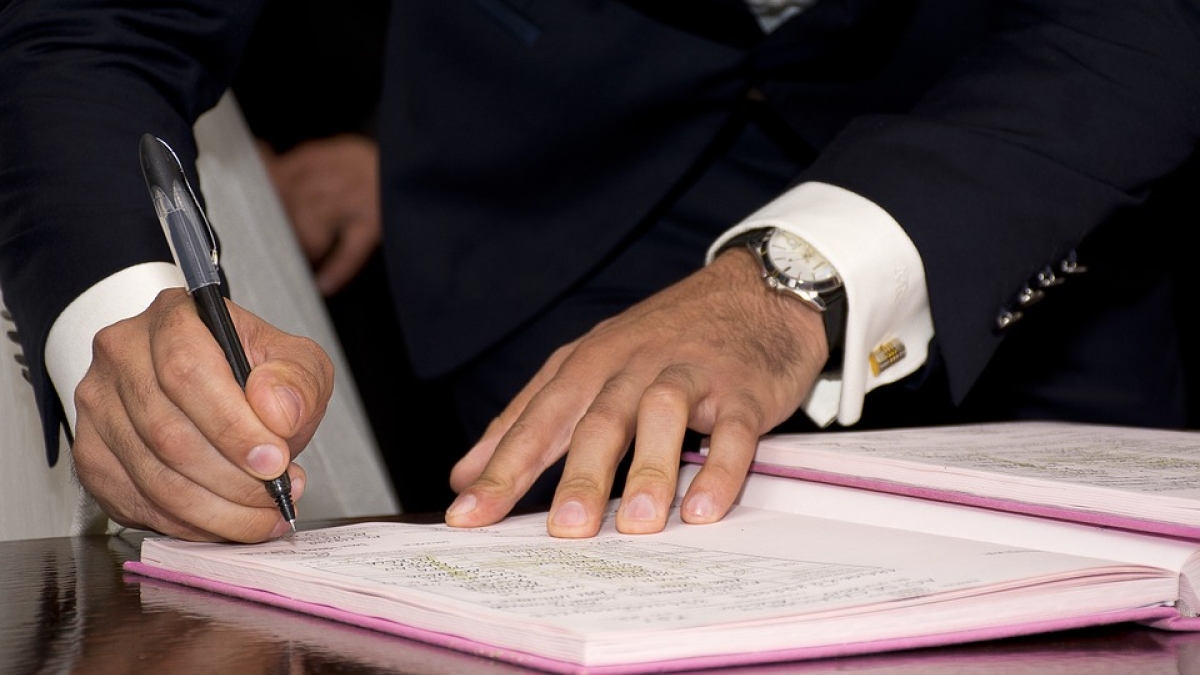President Donald Trump is considering backing out of the Iran Nuclear Agreement Review Act of 2015. Many believe it could leave the United States a diplomatic pariah if he follows through.
Trump says he will make a decision this week, which has led to wide speculation about sanctions, soured relationships and the future implications of multinational pacts.
To seek answers, ASU Now turned to Sandra Day O’Connor College of Law Professor Daniel Bodansky, an expert in international law.
Daniel Bodansky
Question: President Trump has been talking about scrapping the Iran nuclear deal, which was struck in 2015 before he took office. Good or bad move, and why?
Answer: This raises two questions: First, is scrapping the agreement legal and, second, is it a good idea? The Iranian Nuclear Agreement is not a legal agreement but a political agreement. It doesn’t have the status of a treaty, and it’s not binding in the area of international law. Presidents have quite a bit of authority to terminate legal agreements like treaties, but they have even more authority to terminate political agreements. So, yes, as a legal matter, President Trump is able to terminate the agreement.
But that doesn’t mean terminating the agreement would be a good idea. Opinions about the deal differ, but in my view the overriding idea of the agreement was to curb the Iranian nuclear program and it’s been successful in doing that. The agreement hasn’t curbed Iran’s support for terrorism and activities in the Middle East — it wasn’t intended to do that. Like most agreements, it can’t do everything. However, pretty much everyone agrees that Iran has been complying with the limits on its nuclear program. There’s very strict monitoring under the agreement, and there’s no evidence of violations.
Q: What are the foreign-policy repercussions if the United States pulls out of this agreement?
A: Two kinds of implications. First, pulling out of the Iranian agreement would make it much more difficult to do a negotiation with North Korea because even if an agreement was reached, if Trump pulls out of the Iranian deal, it means that he very well might pull out of a North Korean deal as well. North Korea will be less likely to want to strike a deal with the U.S. if they feel we might change our mind later.
The second implication is for our relationships with our allies in Europe who support the agreement. Pulling out of the Iran deal will obviously undermine relationships with European countries and make it more difficult to work together on issues like North Korean in the future.
Q: What would pulling out of the Iran nuclear deal achieve?
A: It’s not clear whether Congress will re-impose sanctions on Iran, so it may be more symbolic than anything else. Also, if our allies don’t re-impose sanctions, any sanctions imposed by the U.S. would be a lot less effective than previously. It seems as if Iran is holding up its end of the bargain, so if the sanctions were proposed again by the U.S., we’d probably be going it alone at this point.
Q: How does a political deal like the Iran agreement differ from a treaty like the North Atlantic Treaty that established NATO?
A: The North Atlantic Treaty was intended to establish legal obligations and be governed by international law. In contrast, the Joint Comprehensive Plan of Action was intended to create only political commitments.
Top photo courtesy of Pixabay
More Law, journalism and politics

CNN’s Wolf Blitzer to receive 41st Walter Cronkite Award for Excellence in Journalism
Wolf Blitzer, the longtime CNN journalist and anchor of “The Situation Room With Wolf Blitzer,” will accept the 41st Walter Cronkite Award for Excellence in Journalism, Arizona State University has…

Cronkite School launches Women Leaders in Sports Media live-learn program
Women in a new sports media program at Arizona State University got a solid game plan from a sports veteran at an Aug. 20 welcome event.“Be humble, be consistent and be a solver,” Charli Turner…

ASU center to host the Pursuits of Education and Excellence Symposium
The Center for the Study of Race and Democracy (CSRD) at Arizona State University is introducing the Pursuits of Education and Excellence Symposium as part of an ongoing initiative to commemorate the…

